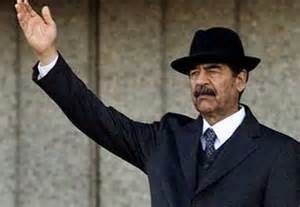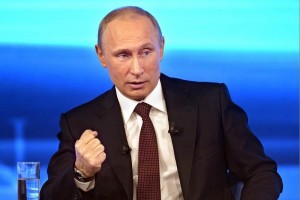When the Soviet Union collapsed in 1989, I worked in a small north Georgia town as a historic preservation planner. I watched the world-changing events on television in my cramped historic house, used during the Civil War as a hospital for wounded and dying soldiers.
Touched by the reminders of that war, I rejoiced at this peaceful revolution. Cheering crowds shredded the Iron Curtain as they hammered down the Wall in Berlin and ousted Communist regimes in other eastern European countries.
 For the next episode, I was privileged to work closer to the front lines. I was in Saudi Arabia working for the State Department when the Iraqi dictator Saddam Hussein was defeated by the first alliance since World War II that included Russia.
For the next episode, I was privileged to work closer to the front lines. I was in Saudi Arabia working for the State Department when the Iraqi dictator Saddam Hussein was defeated by the first alliance since World War II that included Russia.
A decade later, terrorism, two wars, and a world-wide recession blunted that optimism. Then it revived with the “Arab spring” that begin in late 2010, leading to the overthrow of several Arab dictators. When the Arab spring froze into what some call the “Arab winter,” pessimism returned.
So have the dictatorships.
 Vladimir Putin in Russia, Bashar al-Assad in Syria, and the generals in Egypt, among others, push against what a short time ago seemed an unstoppable march to self-government.
Vladimir Putin in Russia, Bashar al-Assad in Syria, and the generals in Egypt, among others, push against what a short time ago seemed an unstoppable march to self-government.
What happened?
The lack of job growth worldwide played a part, including a major recession. Even more, the growth of tycoon-laced corruption in some of the new nations, especially in Russia, meant that the newly-hatched democracies never learned to fly according to the rules of a civil society. The former Soviet republic, Ukraine, was one such failed hope.
Unfettered capitalism did take root, the kind that flourished in the United States in the Gilded Age. Without a corresponding growth in such institutions as an impartial court system, an accountable police force, and an independent press, the industrial titans gained too much power.
 Ukraine has recently struggled to return to democracy but it is hampered by the leftovers of a corrupt regime. Russia’s Putin took advantage of the country’s weakness. That is often the way dictators amass power.
Ukraine has recently struggled to return to democracy but it is hampered by the leftovers of a corrupt regime. Russia’s Putin took advantage of the country’s weakness. That is often the way dictators amass power.

